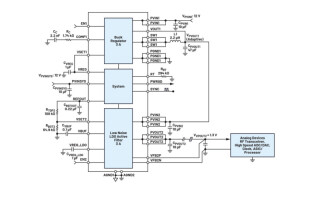MixComm Developing 5G, SUMMIT 2629TM Front End IC on GLOBALFOUNDRIES? 45RFSOI Solution
March 16, 2020
News

MixComm announced its first production device, the SUMMIT 2629. The start-up?s technology is based upon breakthroughs developed at Columbia University CoSMIC lab led by Dr. Harish Krishnaswamy.
MixComm announced its first production device, the SUMMIT 2629. The start-up’s technology is based upon breakthroughs developed at Columbia University CoSMIC lab led by Dr. Harish Krishnaswamy.
The SUMMIT 2629 integrates power amplifiers, low noise amplifiers, T/R switching, beamformers, calibration, gain control, beam table memory, temperature and power telemetry, and high-speed SPI control for a front-end module with optimal partitioning for 5G infrastructure.
“Over the next couple of years, we will start to see the true proliferation of mmWave 5G, but for this to be successful, a leap forward is required in the hardware technology,” said Krishnaswamy, in a press release. “Over the next several quarters, MixComm will be announcing several more products which will continue to march forward in performance, features and cost.”
The device is fabricated in GLOBALFOUNDRIES 45RFSOI. SUMMIT 2629 operates from 26.5-29.5GHz and is the first of a family of MixComm mmWave devices.
MixComm SUMMIT 2629 Product Highlights:
• Four-element Dual-pol. TX/RX with Independent Polarization Beam Directions
• Efficiency SOI CMOS Power Amplifiers
• Low-Noise Amplifiers and Low-Loss T/R Switching
• Transmit and Receive-Mode Power Consumption
• 6-bit full-360o Phase Shifting and 0.5dB-step 16dB-range Variable Gain in Each Path
• Calibrated for Gain/Phase Matching Across ICs
• On-chip Temperature and Power Sensing
• On-chip Gain Control for Temperature Compensation
• SPI with Large On-Chip Beam Table Storage
• Wafer-Level Chip-Scale Package (WLCSP) compatible with low-cost PCB manufacturing
• Support for Large-Scale Arrays through Multiple Chip-Addressing Modes




